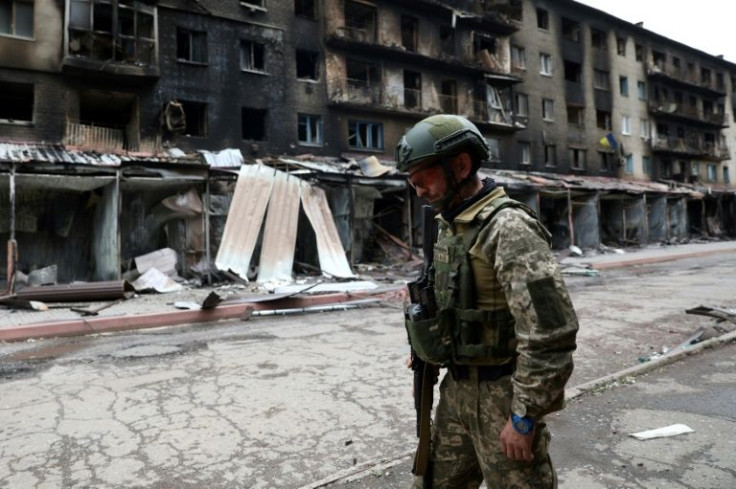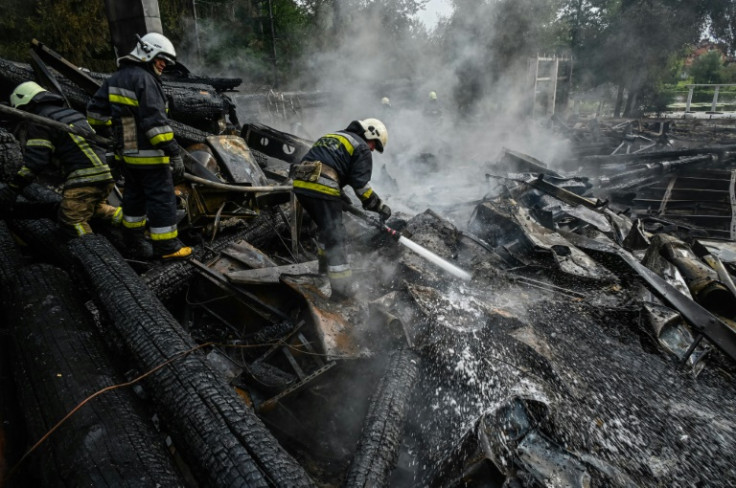Russia Returns 'Mutilated' Body Of British Volunteer: 'Missing Body Parts, Traces Of Torture'

KEY POINTS
- A Ukrainian official said Paul Urey's body had numerous cuts
- DPR ombudsman claimed Urey died due to 'illness and stress'
- Forensic medical experts are now determining his cause of death
Russia has returned the body of a British aid worker with signs of "possible unspeakable torture," according to a Ukrainian official. The 45-year-old aid worker was captured by pro-Russian forces in April.
The body of Paul Urey was returned Wednesday. However, parts of his body were missing and his corpse exhibited signs of torture, Dmytro Lubinets, the Verkhovna Rada Commissioner for Human Rights, said.
"Missing body parts, numerous cuts and traces of torture: Russia returned the body of British volunteer Paul Urie," Lubinets wrote in a Telegram post. "In July, we saw statements by Russian propagandists about the death of Paul Ury "as a result of illness and stress", and today, September 7, we received a mutilated body."
Lubinets added that forensic medical experts are still working to determine Urey's cause of death. If they find evidence of torture, it could potentially contradict a claim made by Donetsk People's Republic (DPR) ombudsman Daria Morozova who said that Urey died on July 10 due to "illness and stress" and "chronic illness." The British aid worker suffered from type 1 diabetes and required daily insulin.
Urey and his acquaintance Dylan Healey were captured by pro-Russian separatists at a checkpoint in Zaporizhzhia Oblast, in southern Ukraine, on April 29 while driving to help a woman and two children, according to the non-profit Presidium Network, a U.K.-based NGO.
Urey was later charged with mercenarism, commanding military operations, recruiting and training other mercenaries for the Ukrainian army. Morozova also claimed that Urey had participated in other conflicts in Afghanistan, Iraq, Libya and Ukraine, according to Russia-state news agency TASS.
Urey appeared on Russian state TV in handcuffs in May, two months before his death. During his appearance, he criticized the British government and the British media's coverage of Russia's invasion of Ukraine.
Reports of torture in Russian prisons have increased since the war in Ukraine began in February. In June, Tamila Tasheva, Kyiv's representative to Crimea, accused the Russians of holding at least 600 Ukrainian activists, journalists and prisoners of war in torture chambers around the occupied city of Kherson.
In July, the Organization for Security and Cooperation in Europe (OSCE) issued a report that detailed "clear patterns of serious violations of international humanitarian law" by the Russian army. The report said investigators found a series of torture chambers in a summer camp in Bucha and at least 18 mutilated bodies of Ukrainian civilians in Zabuchchya.
The report also said some people have "simply disappeared" after passing through "filtration centers" set up by Russian forces in occupied territories.

© Copyright IBTimes 2024. All rights reserved.






















